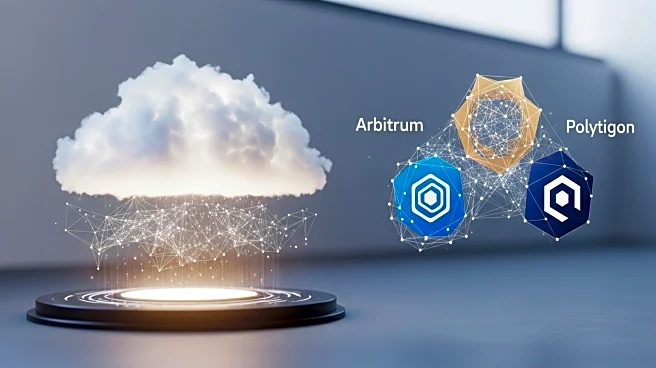What's Happening?
Hashj, a global cloud mining company, is expanding its offerings to include Arbitrum, Optimism, and Polygon mining. These are Layer 2 solutions that enhance the speed, cost, and user experience of Ethereum transactions. Hashj allows investors to participate in these mining activities without needing specialized equipment, offering daily returns and a cash incentive of $118 upon registration. Arbitrum mining involves staking ARB tokens to contribute to the rollup ecosystem, while Optimism mining offers cheaper transaction fees and shorter confirmation times. Polygon mining supports thousands of NFT marketplaces and DeFi platforms, using a sidechain model for fast and low-cost transactions.
Why It's Important?
The expansion into Arbitrum, Optimism, and Polygon mining by Hashj represents a significant development in the crypto economy, particularly as Ethereum gas fees remain high. These Layer 2 solutions provide scalable options for decentralized applications, making them attractive to developers and investors alike. By offering cloud mining services, Hashj lowers the barrier to entry for retail investors, allowing them to benefit from Ethereum's growth without technical expertise. This move could lead to increased adoption of these Layer 2 solutions, driving further innovation and investment in the blockchain space.
What's Next?
As more DeFi projects migrate to Layer 2 solutions like Arbitrum, Optimism, and Polygon, Hashj is positioned to capitalize on this trend by offering accessible mining options. The company may continue to expand its offerings to include other promising blockchain technologies, further diversifying its portfolio. Investors and developers are likely to keep a close eye on the performance and adoption rates of these Layer 2 solutions, which could influence future investment strategies and technological developments in the crypto industry.
Beyond the Headlines
The shift towards cloud mining and Layer 2 solutions highlights a broader trend in the crypto industry towards scalability and accessibility. This could lead to ethical considerations regarding the environmental impact of mining activities and the decentralization of financial systems. As blockchain technology continues to evolve, the balance between innovation and sustainability will be a critical area of focus for industry stakeholders.










